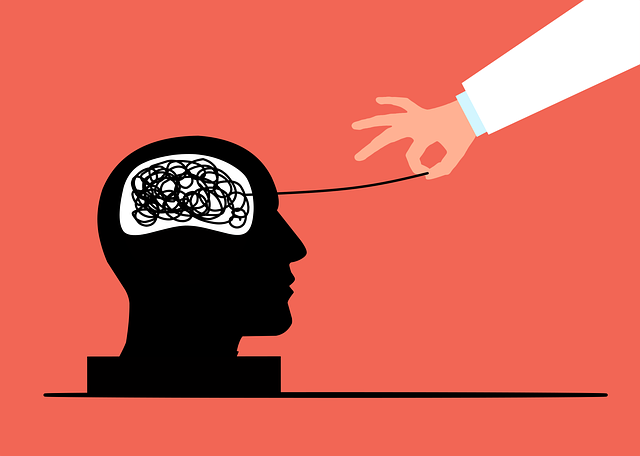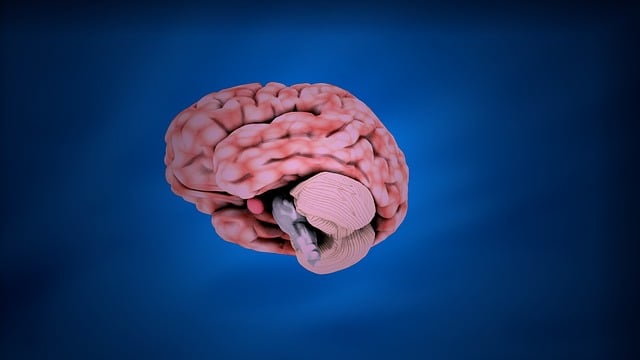Lone Tree Hebrew Speaking Therapy advocates for comprehensive mental health education that starts with understanding diversity and complexity. Their engaging curriculums combine interactive activities, reflective exercises, and practical tools like stress management and conflict resolution to destigmatize mental health issues. By incorporating cultural sensitivity and creating safe spaces through anonymous sharing and open dialogue, they foster trust and encourage active participation. Evaluating program impact with pre/post assessments and crisis intervention guidance ensures continuous improvement and tailored relevance for participants' long-term mental wellness.
“Uncovering the key to fostering holistic well-being, this article explores the intricate design of mental health education programs. From laying a solid foundation with ‘Understanding Mental Health’ to engaging students through innovative curriculum strategies, we delve into effective practices.
We highlight the unique contribution of Lone Tree Hebrew Speaking Therapy in incorporating cultural sensitivity, emphasizing its role in inclusive learning. Additionally, we discuss breaking down stigma barriers and fostering trust, essential elements for successful mental health initiatives. The article concludes by touching on evaluation methods to ensure continuous improvement.”
- Understanding Mental Health: A Foundation for Education
- Designing an Engaging Curriculum: Strategies and Activities
- Incorporating Cultural Sensitivity: The Role of Lone Tree Hebrew Speaking Therapy
- Facilitating Open Dialogue: Overcoming Stigma and Building Trust
- Measuring Impact: Evaluation and Continuous Improvement
Understanding Mental Health: A Foundation for Education

Mental health education programs must begin with a solid foundation of understanding mental health as a diverse and complex aspect of human experience. At Lone Tree Hebrew Speaking Therapy, we recognize that promoting mental well-being involves addressing various factors, including stress management, emotional regulation, and conflict resolution techniques. By incorporating lessons on building inner strength and developing coping mechanisms, these programs can empower individuals to navigate life’s challenges more effectively.
Such educational initiatives should also focus on destigmatizing mental health issues, encouraging open dialogues, and providing practical tools for self-care. Equipping individuals with knowledge about anxiety relief strategies and conflict resolution techniques enables them to foster healthier relationships and improve their overall quality of life. This holistic approach ensures that participants gain the necessary skills to thrive both personally and professionally.
Designing an Engaging Curriculum: Strategies and Activities

Designing an engaging curriculum is a key aspect of creating an effective mental health education program. At Lone Tree Hebrew Speaking Therapy, we believe in employing diverse strategies to cater to various learning styles and maintain participant interest. Incorporating interactive activities, such as group discussions, role-playing scenarios, and creative exercises like art therapy, ensures active participation. These methods not only make the learning experience more enjoyable but also reinforce key concepts and skills.
To foster self-awareness, for instance, we integrate exercises that encourage participants to reflect on their thoughts, emotions, and behaviors. Additionally, our Mental Wellness Podcast Series Production serves as a dynamic resource, providing accessible information and real-life stories that resonate with the audience. Furthermore, modules focused on stress management offer practical techniques and tools, enabling individuals to develop healthy coping mechanisms tailored to their unique needs.
Incorporating Cultural Sensitivity: The Role of Lone Tree Hebrew Speaking Therapy

Incorporating cultural sensitivity is a vital aspect of designing effective mental health education programs. Lone Tree Hebrew Speaking Therapy serves as an excellent case study, demonstrating how cultural integration can enhance therapeutic approaches. By recognizing and understanding diverse cultural backgrounds, therapy sessions become more inclusive and accessible, fostering stronger connections between therapists and clients. This approach is particularly relevant in today’s globalized world, where individuals from various ethnic and linguistic groups seek support for their mental wellness.
Lone Tree Hebrew Speaking Therapy focuses on empathy building strategies and compassion cultivation practices tailored to meet the unique needs of its community. They offer a safe space where participants can openly discuss mental health concerns while incorporating cultural elements into therapeutic activities. This personalized approach encourages active participation, promotes understanding, and fosters a sense of belonging, ultimately contributing to improved mental wellness outcomes.
Facilitating Open Dialogue: Overcoming Stigma and Building Trust

Creating a safe and supportive environment is paramount when designing mental health education programs. Encouraging open dialogue can significantly impact reducing stigma associated with mental health issues, fostering trust among participants. At Lone Tree Hebrew Speaking Therapy, we understand that breaking down barriers begins with conversation. By implementing strategies like anonymous sharing circles or guided discussions, individuals feel empowered to share their experiences without fear of judgment. This approach not only normalizes conversations about mental health but also allows for the exchange of diverse perspectives and personal narratives.
Incorporating self-awareness exercises into the program further strengthens this process. These activities help participants recognize their emotions and triggers, promoting early intervention and better coping mechanisms. Additionally, crisis intervention guidance should be woven throughout the curriculum to equip individuals with tools to navigate challenging situations effectively. Ultimately, these strategies collectively contribute to a more inclusive learning atmosphere where trust is cultivated, stigma is challenged, and open dialogue becomes the norm, mirroring best practices in risk management planning for mental health professionals.
Measuring Impact: Evaluation and Continuous Improvement

Measuring the impact of a mental health education program is vital for its continuous improvement and longevity. At Lone Tree Hebrew Speaking Therapy, we implement robust evaluation strategies to assess the effectiveness of our initiatives. This involves pre- and post-program assessments to gauge participants’ understanding and application of learned skills in real-life scenarios. By comparing these results, we identify areas of success and aspects that require refinement.
Regular feedback from participants and stakeholders is also integral to this process. We encourage open dialogue to understand the program’s strengths and weaknesses from diverse perspectives. Incorporating crisis intervention guidance and emotional regulation techniques into our curriculum ensures that we address immediate needs while fostering long-term mental wellness. This holistic approach allows us to tailor programs, ensuring they remain relevant and impactful over time.
Mental health education programs play a pivotal role in fostering awareness, reducing stigma, and promoting well-being. By combining robust curriculum design with cultural sensitivity, as exemplified by Lone Tree Hebrew Speaking Therapy, we can create inclusive spaces that encourage open dialogue. Incorporating engaging strategies and activities ensures participants remain invested throughout the learning process. Evaluating program impact is essential for continuous improvement, allowing us to adapt and enhance these initiatives based on measurable outcomes. Ultimately, these programs are game-changers in navigating mental health conversations and fostering supportive communities.








